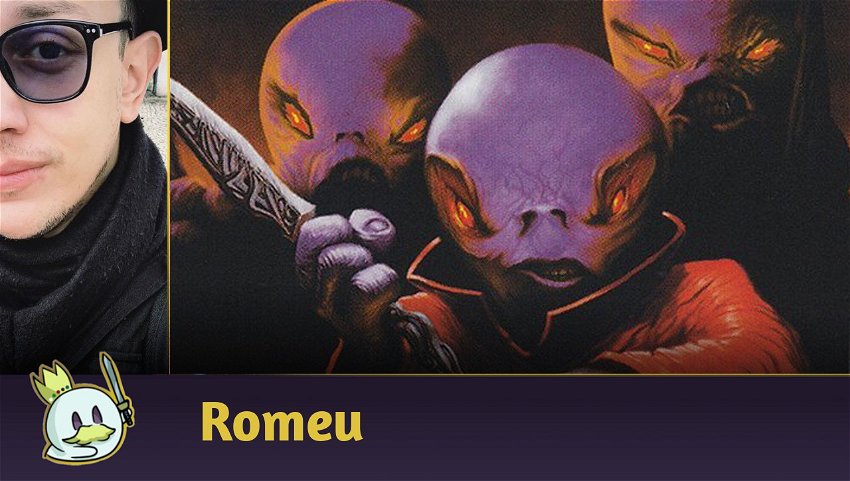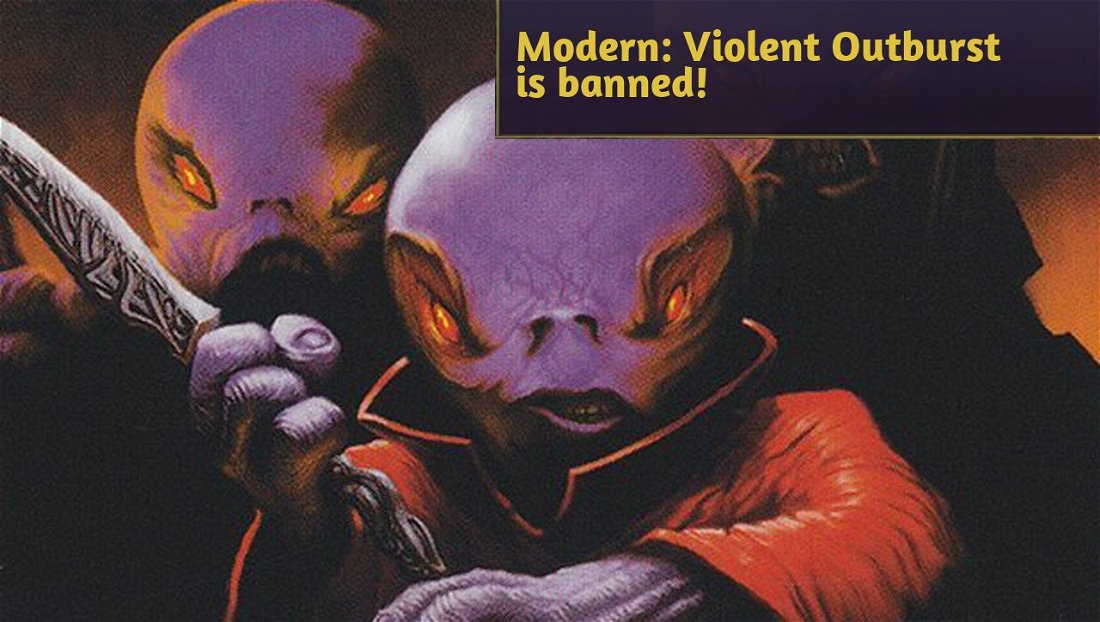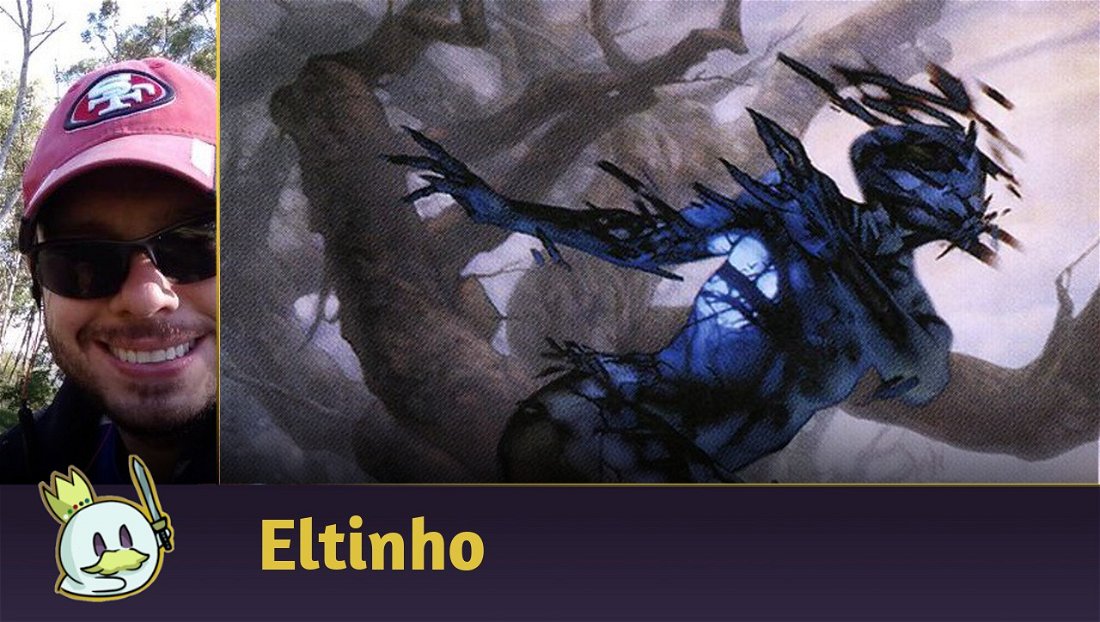A new banned and restricted announcement aired last Monday, March 11, bringing the ban of Violent Outburst in Modern as well as a summary of how Wizards is seeing health in the Metagame of each competitive format.
Like every update, this one was flooded with speculation about what the inherent problems in the Metagame are today and which cards could be banned to solve them, as well as ideas around cards whose power levels would be safe for unbanning.
In this article, I present my analysis of the March 11th Banlist and its main implications for competitive Magic!
Ad
Standard: Nothing out of the ordinary
Speculating about possible bans in Standard in a March update is like expecting snow during the Brazilian summer - it's not the time of year for that.
Since the start of the project to revitalize the format and competitive structure, Wizards has promised to maintain a less interventionist stance for Standard, with bans only necessary in extreme cases where a degenerate strategy dominates the Metagame with significant numbers.
Despite Esper Midrange remaining as the best deck in the format since last season and the fact the Metagame staples remain almost the same, Standard is not in an environment where we should expect bans, as there is no discrepancy in numbers, winrate, or representativeness.

Of course, like every competitive environment, Standard has its dose of cards and decks whose experience can be unpleasant - Sunfall, for example, started a debate about the Metagame being full of efficient sweepers without useful protections - and we aren't always matched in tournaments, Leagues and ranked against decks we like to face. It's part of the game.
After several bans throughout the years seeking to keep the format “fun”, it's good to see Wizards return to the stance of understanding that Standard has cycles, and they won't always be fun, and that doesn't mean cards need to be banned - In the end, Players prefer stability rather than constant innovation for rotating formats.
Pioneer: No changes felt unexpected
While stability is a strong point of a rotating format, eternal formats have more room for changes and interventions, as their Metagame may stagnate at some point and pull certain strategies out of competitive tournaments.
Pioneer today faces three archetypes whose players consider their play patterns too troublesome for the format: Izzet Phoenix, Abzan Amalia and Lotus Combo, and most of the speculation surrounding bans involves key pieces of these archetypes, such as Treasure Cruise, Amalia Benavides Aguirre and Lotus Field.

After its representation in the Pro Tour Murders at Karlov Manor, where it maintained good results despite being one of the most anticipated archetypes in the Metagame, Izzet Phoenix became the focus of the debate about being too efficient for Pioneer. After all, if the deck had a target on its back during the game's biggest professional event of the season and still succeeded, its power level would be expected to be above standards.
Personally, I strongly disagree with this statement. Izzet Phoenix maintains its space in the Metagame because it is a Turbo Xerox, and like every archetype on this spectrum in eternal formats, it is extremely adaptable to the environment in which it is located and greatly rewards players who specialize in its strategy and are dedicated to knowing its ins and outs.
Ad
That said, just like Delver decks in Legacy, Izzet Phoenix has the potential to take over formats with any carelessness. A stronger addition that leverages its strategy easily makes it rise above 25% of the Metagame share, and many bans can occur to keep it in check.
Considering the historical impact of Treasure Cruise on eternal formats, we can assume that its ban is a matter of when rather than if. And that time could take months, or years, depending on what new additions might make it too degenerate to the format's standards.

On the other hand, Amalia Benavides Aguirre and Wildgrowth Walker living through another season cycle was the most unexpected part of this update. The combo between these two cards creates some of the most complex and unpleasant logistical problems in competitive Magic, whether in tabletop games or on online platforms: the ability to establish infinite loops and tie games.
Magic is not usually lenient with anti-game situations or with games that take too long due to a repetitive pattern of actions, and Abzan Amalia has both. The fact that these loopings and anti-game situations occurred in the semi-finals finals of the Pro Tour, where the match went to Game 7 because Simon Nielsen managed to force a draw by giving indestructible to Wildgrowth Walker was another aggravating factor, and in theory, it would have been the nail in the coffin for this archetype.
Abzan Amalia's winrate and representation numbers are far from oppressive, despite this being one of the most popular combo decks in the format, and perhaps Wizards saw advantages in keeping it in the Metagame at this time. However, like Treasure Cruise, banning one of its combo pieces seems like a matter of when, with when being “as far as Wizards deems it acceptable for games to be forced to a draw in competitive events.”

Most talks about bans in Lotus Combo involve the way this archetype forces the Metagame to adapt with specific pieces: Damping Sphere was one of the most played cards in the Pro Tour, and the main reason to run it involves locking the Lotus player's mana and spell sequence.
Given that this is Izzet Phoenix's worst matchup today, and it's not in a format-dominant position, it feels like a necessary evil these days, with inherent weaknesses which help give Aggro a reason to be played even when they have a horrendous matchup against Abzan Amalia, making it a good balancer for the Metagame.
On the other hand, Lotus Combo is also making the game's design team "break the rules" to establish new ways of dealing with the combo, like Krenko's Buzzcrusher, a pretty bad example of how the game's nuances are becoming increasingly complex to deal with Hexproof and other cards with built-in protection.
There may be a time when Lotus Field deserves a ban because its combo found a way to deal with bad matchups with too much consistency and took over Pioneer, but that time is certainly not now.
Ad
Modern: The cycle repeated
A deck emerges with a new core through additions received over the last few months, gains consistency and begins to take hold of the Metagame. The format tries to adapt, but fails because this strategy attacks from multiple angles and a ban is necessary to try to correct things.
We've seen this cycle before with Rakdos Grief, and we're seeing it again with Temur Rhinos.

Violent Outburst is banned. This was the result we expected since its main archetype rose beyond 15% of the Metagame, and it seems like the most logical ban if we consider how this card breaks the sorcery speed rules and allows to turn Force of Negation into a Force of Will to protect Crashing Footfalls or Living End.
The impact is clear: Cascade decks lose the ability to “cheat” in casting their key cards while they will be forced to adopt a fourth color to have access to eight or more enablers - Wizards itself recognizes Ardent Plea and Demonic Dread as valid replacements, while Bloodbraid Elf may also return if players opt for more compromises.

For both payoffs, I believe Ardent Plea becomes the key card to accompany Shardless Agent in Cascade decks: not only can we pitch to Subtlety with it, but it also allows running Solitude as a cheap removal without so much hassle.
Demonic Dread is an option for Living End and can pitch for Grief, but needing a target is a troublesome idea for any of the Cascade variants.

The most recent version of Crashing Footfalls, Domain Rhinos appears to be the big winner of the Cascade variants with this ban: in addition to the ease of access to the other colors with Leyline of the Guildpact, this variant already wants access to white mana for Leyline Binding, and even Bloodbraid Elf can enter this version since Scion of Draco allows us to be more aggressive with our creatures.

On the other hand, the cycle must repeat itself: a degenerate combo leaves, another will take its place.
Golgari Yawgmoth and Amulet Titan are the best unfair strategies in Modern now that the absence of Violent Outburst weakens Cascade decks. Both require more specific interactions and can be more concerned with playing against hate than against the Metagame as other archetypes lose space due to bans.
Unless something absurd happens in Modern in the coming months, I have no expectations of another intervention in the format until a few months after the release of Modern Horizons 3, whose cards could, like its predecessors, reshape the entire competitive scene.
Legacy: Bowmasters should not be banned
It's so funny how Legacy has been dominated by a mix of cantrips for decades, and they maintain their high representation, despite Lord of the Rings bringing the most powerful “fun police” that could exist against them - Orcish Bowmasters.
Ad

Orcs punish players for casting their Brainstorms at the wrong time or even for their Ponders and Preordains when looking for an answer and/or a piece of their combo, and even help maintain Up the Beanstalk in check if our opponent doesn't bother to deal with it.
If we put the pros and cons of its presence in Legacy on a balance, I believe it is better to keep it in the format by finally putting a check on the thoughtless use of cantrips than to return to the point where they predominate, and banning it would not solve the worst part of the problem the format is facing: the Reanimator having established a powerful alternate game plan.

Orcish Bowmasters was one of the motivators to make Reanimator leave its comfort zone and go for a “plan B” with Grief, which not only paves the way to complete its combo but is also an efficient game plan on its own if reanimated and protected with Daze and Force of Will.
The combination of Grief and Orcish Bowmasters is certainly as punishing for Turbo Xerox decks in Legacy as they are for Modern, but blaming these changes exclusively on the newer card without evaluating their benefits for the competitive scene is to ignore that the troublesome part in Reanimator may be how Grief and the potential of playing it on the first turn with Reanimate or Animate Dead amplifies the value of Orcs while winning games on its own.
Pauper: Something needs to change soon
The absence of bans was already expected for Pauper, but we cannot ignore the format has remained the same for too long.

While new strategies and decks have emerged in Pauper over the last few years, its top tier seems constantly contested between two archetypes: Affinity and Kuldotha Red, and not even the format's latest ban, Monastery Swiftspear, seems to have slowed down this problem, as players just adopted another of the several red one-drops that interact with the archetype.

Affinity, on the other hand, received a classic free win button with All That Glitters in Commander Masters, creating recurring situations where the opponent needs to force themselves to play an overly reactive proposition to avoid losing on the next turn - the same issue as previously faced with Atog.
The Metagame continues to revolve around these two strategies, with multiple Sideboard spaces dedicated to dealing with the two best decks in the format, while dedicating five to six cards to play against the rest. It's as if Pauper has stagnated and the recent additions only serve to reinforce the same strategies.
What about Vintage?

After 16 years, Ponder became unrestricted in Vintage, which is an excellent example of power creep and consistency in an environment where cantrips were restricted to prevent easy access to the best cards in each deck.
Ad
Unfortunately, my knowledge of Vintage is very limited, and I can't say whether this was the right choice. Perhaps this is a good time to follow the development of this format on Magic Online.
Conclusion
That's all for today.
If you have any questions or suggestions, feel free to leave a comment!
Thanks for reading!








— 评论0
成为第一个发表评论的人